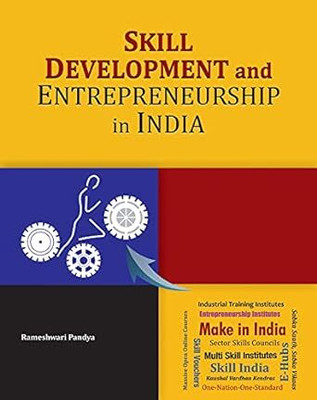Skill Development And Entrepreneurship In India Hardcover ŌĆō 1 January 2016(Hardcover, Rameshwari Pandya)
Quick Overview
Product Price Comparison
Skill development and entrepreneurship are complementary to each other. The term skills is used in the literature to refer to a wide range of attributes and to that extent there is no clear definition of a skilled worker. In practical terms, the term used is marketable skill which commonly refers to any skill/expertise/ability that has a market value, I.E. Which has the potential of being utilised for generating income/employment. Entrepreneurship is the quality of being an entrepreneur, I.E. One who undertakes an enterprise. The term puts emphasis on the risk and effort taken by individuals who both own and manage a business, and on the innovations resulting from their pursuit of economic success. Skill development is important because of its contribution to enhancing productivity at the individual, industry and also National levels because of the complementarities that exist between physical capital and human capital on the one hand and between technology and human capital on the other. Fast changing knowledge economies call for new core competencies among all learners in the society. In India, skill formation is broadly ensured through General education - considered as a provider of generic skills. Other than General education, skill formation efforts consist of vocational education and Training and sector-specific programmes for better employability in industry. The National policy for skill development and entrepreneurship, 2015 aims to bring the world of education and Training closer to the world of work so as to enable them together build a strong India. It provides clarity and coherence on how skill development efforts across the country can be aligned within the existing institutional arrangements. The policy links skill development to improved employability and productivity. This book provides a comprehensive account of policies and programmes for skill development and entrepreneurship in India, focusing on the needs of unorganized (informal) sector workers, marginalised and vulnerable groups and women workers. [Subject: education, economic development, business].


